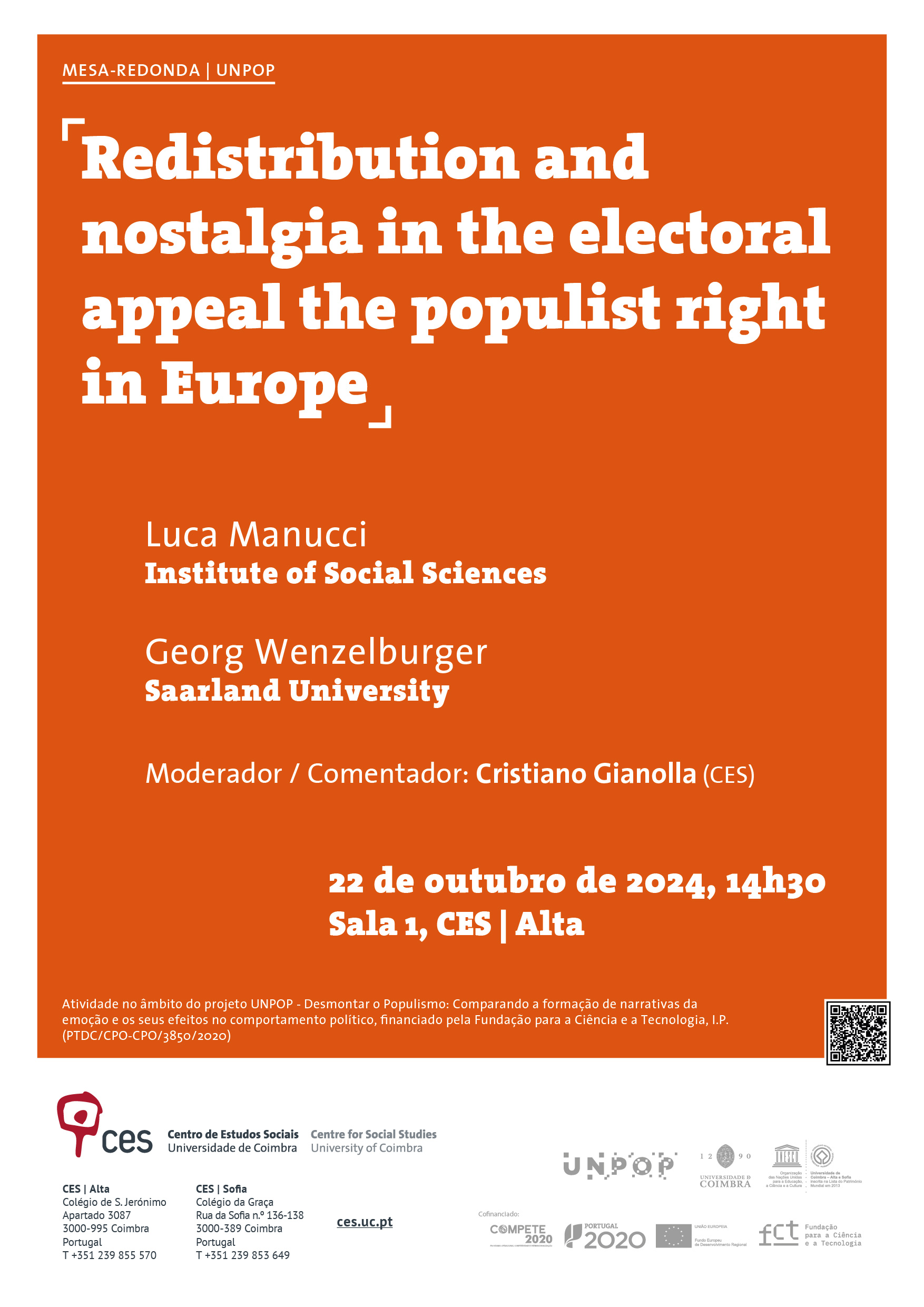Georg Wenzelburger
Luca Manucci
October 22, 2024, 14h30
Room 1, CES | Alta
The round table discussion focuses on the evolving dynamics of right-wing populist (RWP) parties, with a particular emphasis on the role of authoritarian nostalgia and the appeal to pro-redistribution voters. Wenzelburger delves into the complex relationship between RWPs and pro-redistribution voters. While RWPs are generally successful in attracting politically disaffected voters, this success is moderated by the parties’ level of establishment. In contexts where RWPs are less established, they are more likely to attract pro-redistribution voters who are also politically dissatisfied. Conversely, in more established contexts, strong pro-redistribution preferences may repel voters from RWPs despite the appeal of political distrust. Together, these presentations provide valuable insights into the nuanced strategies and voter bases of right-wing populist parties in contemporary European democracies. Manucci explores the relationship between populist radical right (PRR) parties and authoritarian nostalgia in Spain and Portugal. Contrary to the conventional wisdom that PRR parties must distance themselves from authoritarian legacies to achieve electoral success, Manucci’s research suggests that authoritarian nostalgia may, in fact, be a potent tool for mobilizing support. PRR supporters in these countries exhibit strong nostalgia for their authoritarian pasts, which can enhance the electoral appeal of parties like VOX and Chega.
—
This seminar is part of a series within the UNPOP project – UNpacking POPulism: Comparing the formation of emotion narratives and their effects on political behaviour, which aims to explore how narratives of emotion allow a deeper analysis of the way populist phenomena constitute and influence political behaviour.
Thus, the series of events developed throughout the project will address several issues involving the recent growth of populism, focusing on the role of emotions – both those considered negative such as anger and fear, and those considered positive such as hope and love – in political behaviour.
UNPOP is coordinated by Cristiano Gianolla and Lisete Mónico and is based at the Centre for Social Studies and by CINEICC – Center for Research in Neuropsychology and Cognitive and Behavioral Intervention of the University of Coimbra, and is funded by the Foundation for Science and Technology (PTDC/CPO-CPO/3850/2020).



